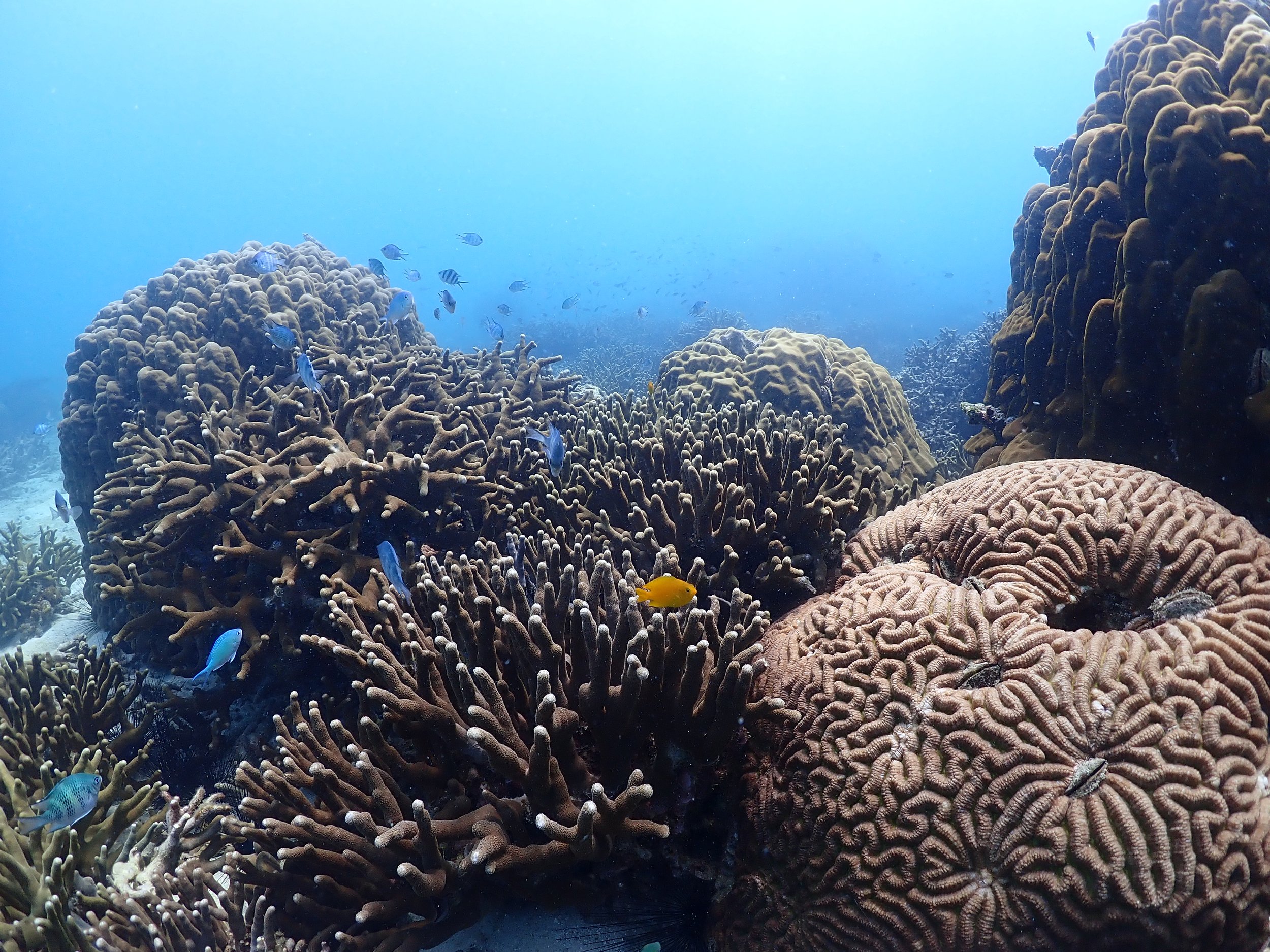We can put a man on the moon, but…
We can’t keep our rivers clean?
Today I had an opportunity to visit the interceptors near the river mouth of the Klang River. What an eye-opening experience.
Thanks to the team at The Ocean Cleanup for showing us around, and to our good friend Dr Yatela, Head of Yayasan Sime Darby, for inviting us to join her group.
It is us creating the problem, and it's us that are going to have make the difference.
The Ocean Interceptor
First, let me say that this is an amazing piece of technology.
Essentially it’s a barge anchored in the river. Upstream, booms across most of the width of the river allow boats to navigate the river, while channelling floating trash towards the “mouth” of this hungry beast!!
A conveyor belt picks up trash from the river flowing under the floating structure and deposits it into big skips. The contents of the skips are transferred regularly to the riverbank for disposal.
A conveyor belt picks up trash from the river
The interceptors – there are 2 in the Klang River, one sponsored by Coldplay, are efficient and effective…as much as they can be. In reality, operational limitations mean they only gather a small part of the waste that flows by.
The Ocean Interceptor that helps to clear trash from rivers
But it’s a start.
My colleagues will be the first to tell you that I’m no photographer, but if this video doesn't shock you then I'm not sure we are part of the same branch of homo sapiens...
The Trash Filled Ocean
Further downstream – another boom, another pile of trash, mainly plastic, diverted from the river. We saw the riverbanks and mangroves littered with trash, sea birds picking their way through it.
Piles of trash
Ask yourself: where does all this come from?
Well, to try to answer that, waste management specialists – and our own research – show that there are 3 main sources: plastic trash can enter the environment from over-flowing trash bins on the street, or it is blown off landfills; there are also systemic problems leading to illegal dumping.
Ok, a bit simplistic, but you get the picture.
But basically, it is down to waste management and a culture that allows this to happen.
Where Does The Trash Come From?
We have to face facts: one way or another, they come from us.
All that plastic – and most of the trash collected by the interceptors is plastic – has at one time been used by us for something – packaging, single use plastics, detergent containers, sweet wrappers…the list is almost endless. And there is one reason, and one reason only, that it ends up in that river: us.
Frankly, seeing this, we should be ashamed of ourselves – Malaysians, human beings…whatever.
The trash comes from us
The Ocean Trash Problem is Created by Us
Is this what we really want? Is this how we want our rivers to be? And our ocean? And our beaches? Where do you think that plastic in our seafood is coming from?
It’s us!
The interceptors are doing a great job; lots of people are working hard on solutions to this seemingly intractable problem. But at the end of the day, they can only treat the symptoms – trash in rivers.
So, what is the cure?
The Solution to the Ocean Trash Problem is Us
If you ask me, it’s down to us. It is us creating the problem, and it's us that are going to have make the difference.
Used glass bottles are crushed to make sand and also reused to make coral blocks
I listen to what my colleagues tell me about what has happened on Tioman Island since Alam Flora took over the waste management system there. Before that, TDA had been doing a good job – but they didn’t have enough manpower and resources. Alam Flora changed that, and the island has become cleaner.
But it’s still a struggle to stop plastic from being released into the environment – even in a small community. Some of it blows out of full bins…some of it is litter. But they have shown that improvement is possible.
We just need the same, on a bigger scale!
We Need To Manage Our Waste Better
Let’s each take a bit of responsibility for our own actions; try that little bit harder to make sure our plastic waste doesn’t enter the environment.
Separate recyclables at home; find out when they will be collected (I do this at home; bins under the sink for paper, plastic and metal; and it’s collected every Thursday in my housing area) and at least help to make material available for recycling.
And STOP LITTERING!
If you want to throw your trash away…the bin is full...drop at the side? Stuff inside knowing it will fall out?
How about…take it to the next bin??? How difficult is that?
Whether it is at home, at work, in the mall…on the street – let’s try to help the government and local authorities in their efforts to improve waste management.
It is our environment, and ecosystems, that are at risk because of our habits
Again – it’s our habits that are largely the cause of this.
And it is our environment, and ecosystems, that are at risk because of this.
______________________________________________________________________________________
If you'd like to support us, you can follow our social media pages for any updates on our work and volunteering opportunities, or you could also donate towards our cause.











